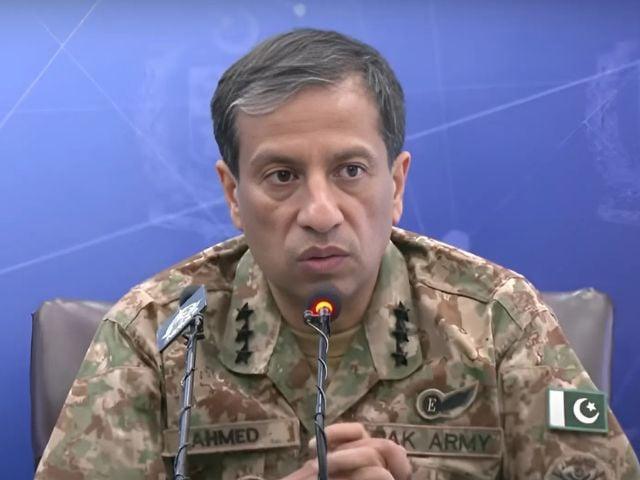The general director of Public Relations between Services (ISPR), Ahmed Sharif Chaudy, described recent tensions with India as more than a military confrontation, calling it a “battle of truth” between information, diplomatic and strategic fronts, in an interview with Al Jazeera.
DG ISPR criticized Indian government and media for spreading what he called false narratives after Phalgham incident, in which India claimed Pakistani participation.
He described the notion that India can block Pakistan’s water as “crazy thought”, observing that six main rivers originate in back.
DG ISPR reiterated that Cashmiro remains an international dispute, which involves Pakistan, India and China, and must be resolved through UN resolutions and the will of the people of Cashmiro.
“Only a crazy person may think that India can stop Pakistan’s water. It is not possible to cut the water for 240 million people,” said the military spokesman who responds to the comments of Indian Prime Minister Narendra Modi.
Modi had said on Thursday that Pakistan would not get water from the waters on which India has rights. The statement occurred a month after a deadly attack in India illegally occupied Jammu and Kashmir (Iiojk) led New Delhi to suspend a key treaty to share the river water among the neighbors.
DG ISPR said that six rivers originate in the Cashmiro region and that, under United Nations resolutions, Kashmir is still a dispute territory.
“If Cashmira joins Pakistan, India becomes a lower riverside state. Then it will be our decision on how to handle the waters,” he said.
DG ISPR added that Pakistan had not deployed all the strength of their conventional forces, noting that many remain focused on anti -terrorist operations in Baluchistan and Khyber Pakhtunkhwa, where India is accused of sponsoring the militancy.
“Pakistan challenged India to present evidence to a neutral third or the international community, but they have not provided anything,” he said, added that the New Delhi Ministry of External Affairs recently admitted that the investigation is still ongoing.
The ISPR chief also denied recent claims in the Indian media claiming Pakistani participation in an attack on the gold temple, qualifying the accusation “the greatest possible lie.”
“We protect the sacred SIJ sites. We honor Kartarpur Sahib and respect our sijs brothers. Our culture, values and religion prohibits attacks on religious or civil objectives.”
DG ISPR said that the credibility of India is eroding due to internal repression, including internet closures and repressions in dissent.
“You cannot generate trust imprisoning journalists or prohibiting thousands of websites. Has Pakistan imprisoned a single journalist during this conflict? Absolutely no,” he said.
The spokesman praised the coordination between the army of Pakistan, the Navy and the Air Force, as well as the unity with political leadership and the public.
He pointed out the Air Force performance during aerial commitments from May 6 to 7 as an example of professional excellence, citing JF-17 Thunder and J-10C combat aircraft and the deployment of surface to surface missiles Fateh-1 and Fateh-2.
“This aerial campaign will be studied at military universities for decades,” he said.
Global powers, including the United States, China, Saudi Arabia, Qatar and Eau, understand the serious risks of escalation between two nations with nuclear weapons.
“India is playing with fire. We exercised wisdom and moderation to avoid a broader conflict,” he said.
While the high fire is currently in place, Chaudhry said that true peace depends on India changing his “political mentality obsessed with war” and ends what he described as systemic oppression of minorities, including Muslims, Christians, Sijs and Dalits.
“Such oppression naturally causes reactions, which India refuses to address,” he said.
He linked the Hindutva ideology with the increase in domestic extremism in India, arguing that India outsternizes his internal problems by blaming Pakistan.
DG ISPR reaffirmed the strategic alliance of Pakistan with China, qualifying it as a multiple -decades association based on mutual respect and regional stability.




